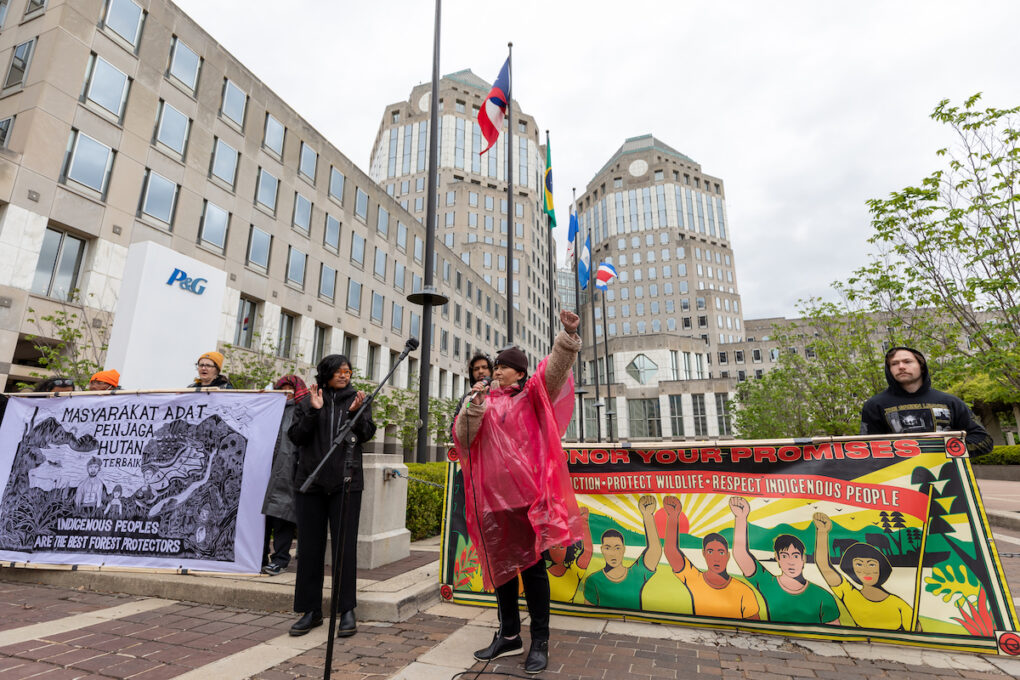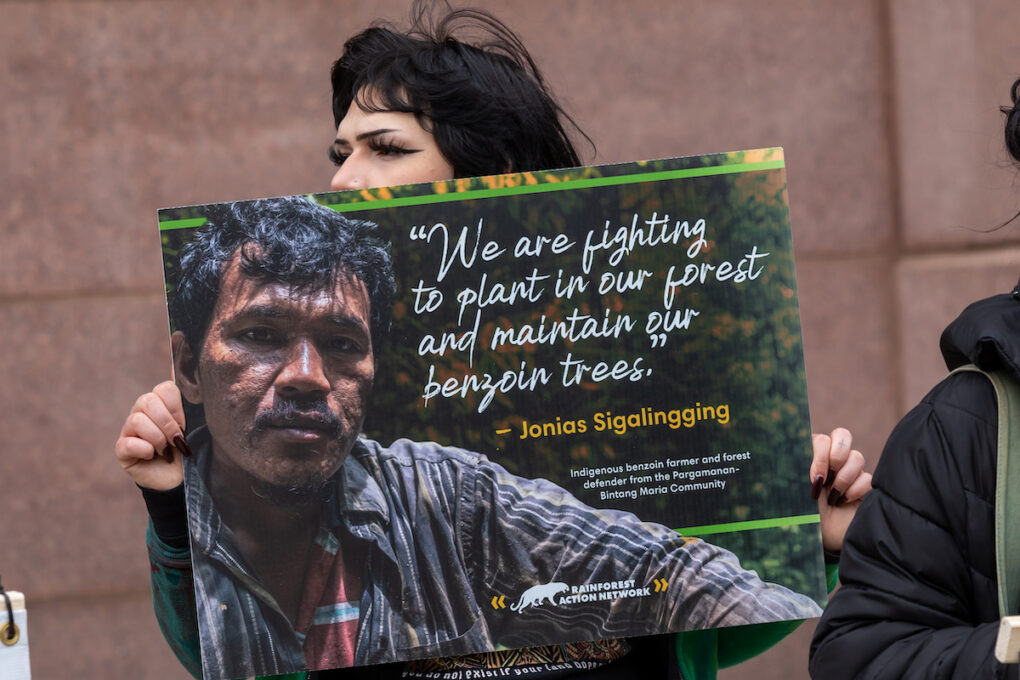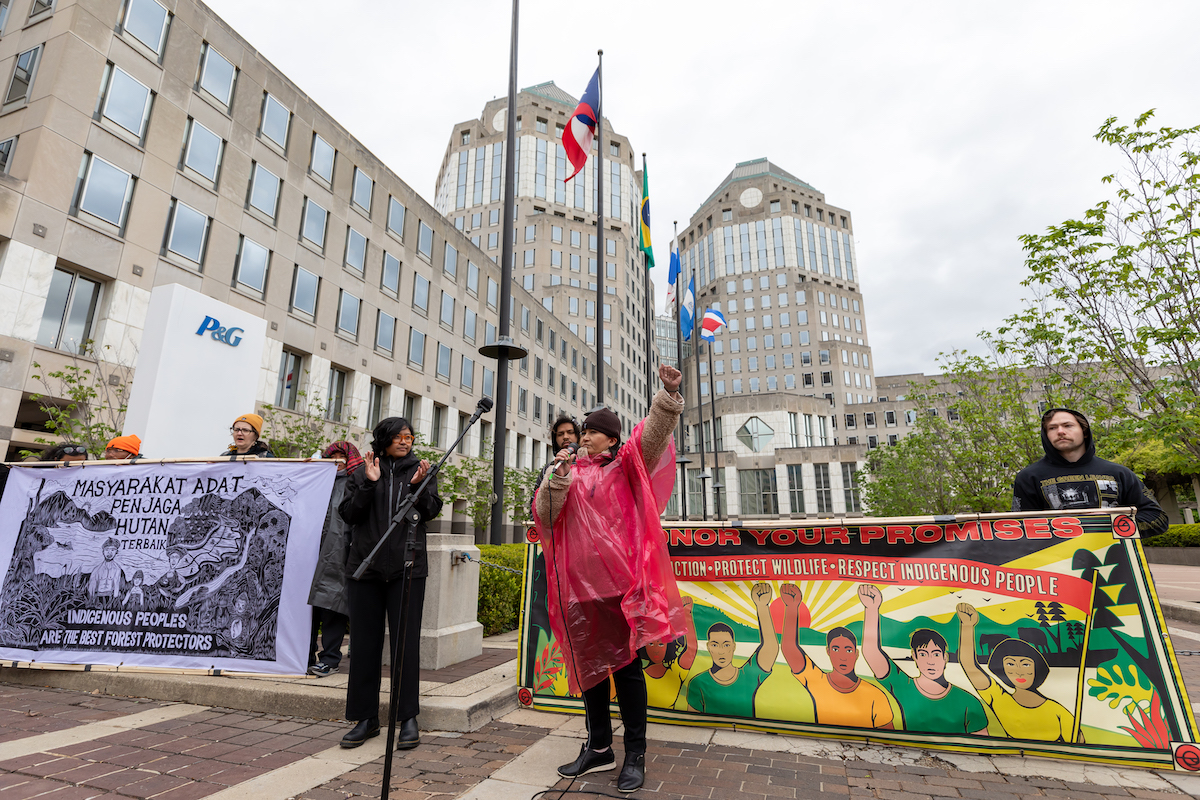Delima Silalahi knows a thing or two about holding corporations accountable: Her recent campaign work turned the tide in a decades-long struggle between Batak Toba Indigenous peoples, stewards of some of North Sumatra’s last intact rainforests, and P&G-connected Toba Pulp Lestari (TPL).
Delima’s organizing helped six Batak Toba communities remove a Manhattan-sized customary land area from TPL’s pulp and paper concession; a feat which won her international acclaim and a 2023 Goldman Prize. But her work is far from over: Nearly two dozen Batak Toba communities could lose their customary lands and livelihoods indefinitely due to TPL’s activities.
TPL is associated with P&G’s longtime palm oil supplier, Royal Golden Eagle (RGE). That’s why Delima came to Cincinnati: to demand that P&G cut ties with RGE over the threats TPL poses to Batak Toba peoples.

“P&G contributes to land grabbing and intimidation against these Indigenous Batak communities through its ongoing business with its supplier, Royal Golden Eagle. P&G must immediately suspend its business ties and demonstrate it respects Indigenous communities,” says Delima.
A Broad Coalition of Support
A delegation of Indigenous Batak Toba activists from the Pargamanan-Bintang Maria community joined Delima in Cincinnati to protest a notable instance of rights violations inside TPL’s concession. TPL now occupies 40% of Pargamanan-Bintang Maria customary lands, where its eucalyptus trees have dried up local rivers and reduced the community’s ability to grow Benzoin incense trees — a staple of the local economy.
A broad coalition of Ohio activists are fighting alongside Delima and the delegation, including outraged descendants of P&G’s founders. “I stand in solidarity with the communities around the world fighting against P&G’s extractive ties,” says Justine Epstein, descendant of P&G founder James Gamble, “Major corporations like P&G must take substantive action towards systemic change that values the demands of impacted communities and protects our planet’s remaining forests. A livable future for all of us depends on it.”
Tell P&G: Land Back for Batak Toba Peoples!
Corporations can stop deforestation and combat climate by respecting Indigenous rights.
As 2030 approaches — the internationally-agreed cutoff to reduce global emissions by half to avoid the very worst of the climate crisis — forests have taken center stage as one of our best solutions to addressing carbon pollution, underscoring the importance of respecting the rights of frontline communities who have protected forests for generations.
That’s why we went to Cincinnati, and we’ll keep demanding P&G end business with RGE until TPL returns the Pargamanan-Bintang Maria’s customary forests and stops criminalizing and intimidating Indigenous communities. As one of the world’s biggest corporate drivers of deforestation, it’s long past time for P&G to eliminate deforestation from its supply chains and respect the rights of frontline communities. Join us in telling P&G to drop RGE!

